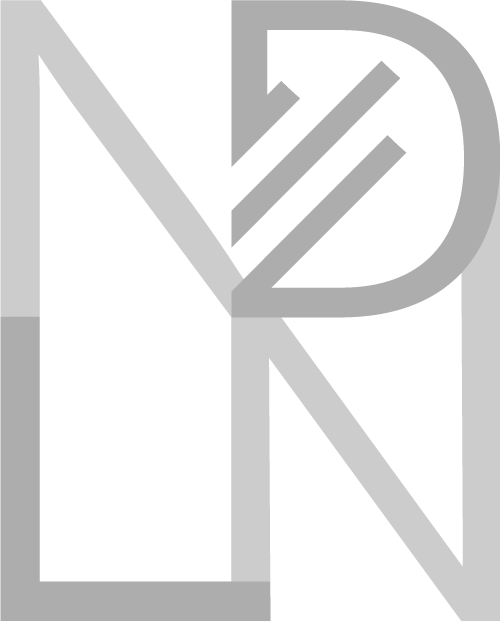About the NDLN
The National Digital Leadership Network (NDLN) is a collaborative initiative dedicated to advancing digital transformation across Ireland’s Technological University sector.
As digital technologies evolve at an unprecedented pace, institutions face growing challenges in strategy, investment, and implementation. The NDLN provides a national platform for leaders to share knowledge, resources, and expertise, ensuring that digital transformation aligns with both institutional and national priorities.
Bringing together scholars, practitioners, and policymakers, the network fosters digital leadership capabilities, blending strategic vision with cutting-edge technological insights. Through research, strategic reports, and events, the NDLN delivers actionable guidance on critical digital challenges, from enhancing digital infrastructure to adapting to evolving teaching and learning needs.
By harnessing collective expertise, the NDLN empowers institutions to navigate the complexities of digital change—driving innovation, improving educational quality, and shaping the future of higher education in Ireland.
Join us in shaping the next phase of digital leadership!
The National Technological University Transformation for Recovery and Resilience (N-TUTORR) project
The NDLN was established under the €40 million N-TUTORR programme, a sector-wide initiative funded through the EU’s NextGenerationEU programme. This project brought together Ireland’s Technological Higher Education sector to drive sustainable innovation at the intersection of learning, teaching and technology.
While the N-TUTORR initiative has concluded, the NDLN steering board—comprising members from the original N-TUTORR partnership—remains active, continuing its work to advance digital leadership and collaboration across the sector.
NDLN Launch at the N-TUTORR Showcase
The NDLN was officially launched on November 26, 2024, at the N-TUTORR Showcase Event in the Convention Centre, Dublin.
The launch of the NDLN featured contributions from Dr Gearoid O Suilleabhain, Catherine Cronin, Dr Trevor Prendergast, Dr Ronan Bree and Lawrie Phipps.
An initial briefing report was made available as part of the NDLN launch, providing an overview of the network, its background and its aims and objectives.
This report also provides a brief outline of each report, along with some information about the authors.
The NDLN Reports
As part of our commitment to strengthening digital leadership in Ireland’s Technological Higher Education sector, the NDLN has commissioned a series of strategic horizon-scanning reports.
Developed by leading national and international scholars and researchers, these reports explore emerging digital trends and challenges, providing insights to help institutions align digital transformation with their strategic priorities. These reports serve as a vital resource for higher education leaders navigating the future of digital innovation.
Please click on each of the report themes below to learn more.
Artificial Intelligence and the New Pedagogical Landscape
AI’s pervasive influence on teaching, learning, and research is evident in multiple reports.
Whittle and Ransom chart the historical trajectory of AI in education, exploring its current capabilities and forecasting how responsible, ethical deployment can reshape student support and assessment.
Pratschke’s focus on generative AI (GAI) also highlights the dual nature of these tools: on the one hand, they present immediate challenges to academic integrity and assessment practices; on the other, they provide opportunities for personalised learning and innovative pedagogies.
Equally important is the intersection with academic integrity, as Eaton and Moya demonstrate in their horizon-scanning work. AI-driven platforms have made it more difficult to detect plagiarism or contract cheating, creating an urgent need for institutions to proactively develop policies, training, and technology solutions that safeguard scholarly standards.
Changing Student Demographics and Financial Sustainability
Bryant’s study discusses the growing diversity in learner demographics and the emergent expectation that higher education will provide flexible, technologically enhanced learning environments.
Meanwhile, Scott’s report focuses on financial and operational dimensions, offering strategies for outsourcing, SaaS adoption, and shared services. When taken together, these perspectives emphasise the interdependence of pedagogical, technological, and financial planning.
Digital Transformation and Hybrid Models
Weller’s report underscores how the pandemic hastened a shift to online and hybrid teaching models—moving from a temporary crisis response to a permanent feature of educational ecosystems. Post-pandemic, many institutions have reverted to on-campus models, even as students continue to value the flexibility that hybrid modes afford. Large Language Models and other AI-driven tools have further questioned the long-standing reliance on conventional essays or standardised exams.
Echoing this, Deepwell focuses on hybrid working arrangements for both staff and students. Hybrid models demand new forms of digital leadership that prioritise inclusivity and adaptability, ensuring that pedagogical innovations align with the institution’s strategic mission and financial realities.
Microcredentials and Lifelong Learning
Belshaw argues for clarity in defining “microcredentials” and advocates for interoperable technical standards (e.g. Open Badges v3). The practical significance of microcredentials extends beyond adding more options for learners; it provides higher education institutions with a means to capture and credential a wider range of competencies and experiential learning. In Ireland, and across Europe through initiatives such as the European Digital Credentials for Learning, microcredentials have the potential to align student learning more closely with emergent workforce demands.
Data Mastery and Ethical Use
Data is central to institutional decision-making, from admissions to student support services, yet many institutions lag in cultivating a robust “data culture.” The report by Pope, Xiong, and Woodworth highlights the technology and skill sets integral to an AI-driven digital economy, emphasising the synergy between data fluency, responsible AI, and institutional sustainability.
Watermeyer, Guizzo, and Dzabolova further tie data usage to the concept of ethical digital leadership. Institutions must navigate complex ethical terrains—balancing commercial imperatives, technological possibilities, and the moral responsibilities towards students, staff, and society.
Academic Integrity and Institutional Responsiveness
Whilst Eaton & Moya’s report specifically addresses integrity, it draws together many cross-cutting themes—digital assessment, policy, and the internationalisation of higher education. As the nature of academic misconduct evolves (from contract cheating to AI-generated content), so must institutional strategies. Proactive, holistic approaches—such as embedding integrity within curriculum design and harnessing AI responsibly—can bolster an institution’s global reputation and educational quality.



